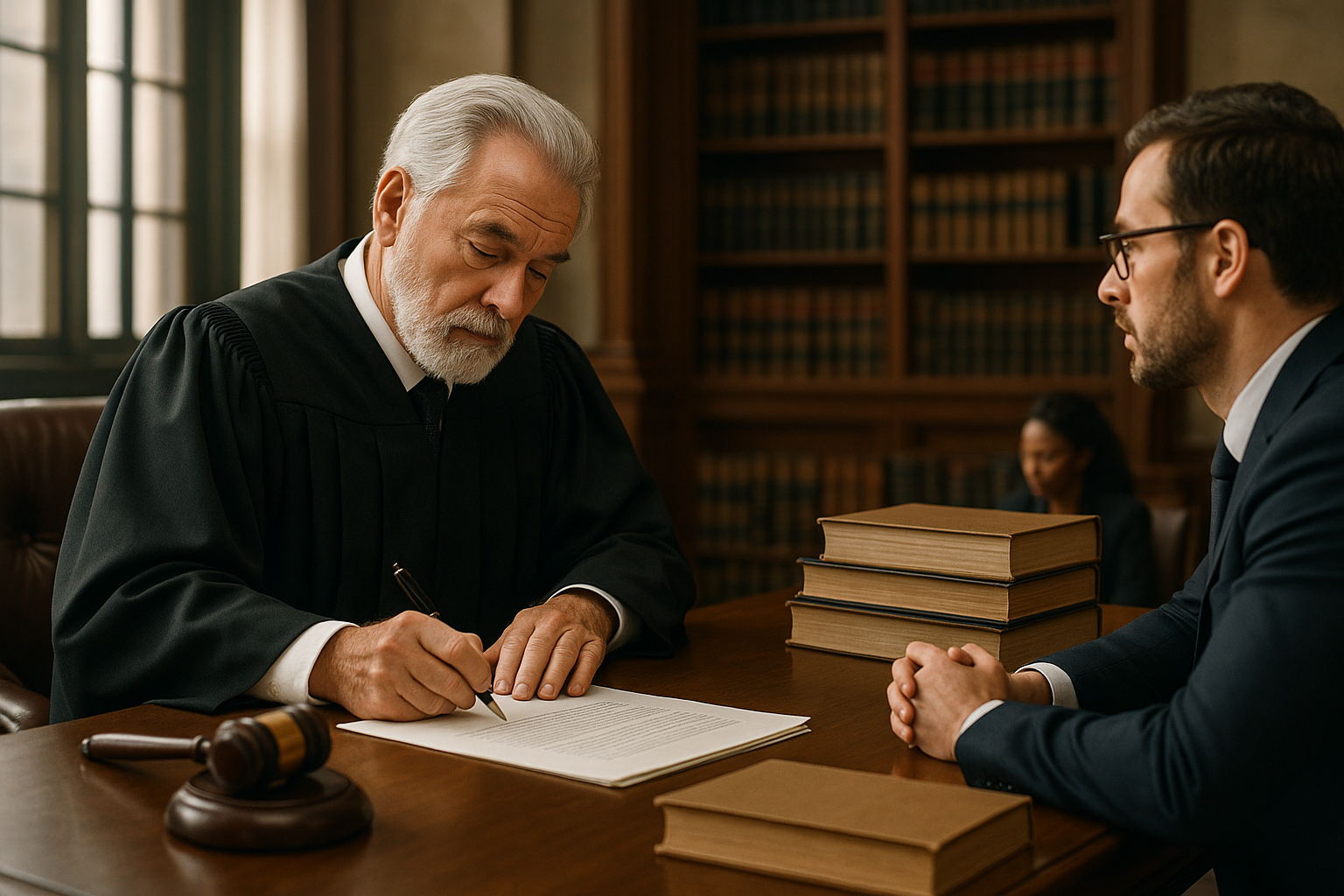How to Find Trusted Legal Assistance Across the United States
Finding reliable legal assistance is crucial when facing legal challenges, whether it involves personal matters, business disputes, or civil issues. Across the United States, there are numerous resources available to connect individuals with qualified attorneys and legal aid organizations. Knowing where to start, understanding the types of services available, and evaluating credentials can save time, reduce stress, and ensure effective representation. This guide explores practical steps, trusted platforms, and professional networks to help you locate reputable legal assistance anywhere in the country.

Legal issues arise unexpectedly, and when they do, having access to qualified legal assistance becomes essential. Whether you’re dealing with a workplace dispute, personal injury claim, contract negotiation, or criminal defense matter, the lawyer you choose can significantly impact the outcome of your case. The United States has over 1.3 million licensed attorneys, making the selection process both promising and daunting. Knowing how to identify trustworthy legal professionals and where to find quality representation ensures you receive competent guidance tailored to your specific situation.
What Makes a Lawyer in USA Trustworthy
Trustworthiness in legal representation stems from several key factors. First, verify that any attorney you consider holds an active license in good standing with their state bar association. Every state maintains a public database where you can confirm licensing status, view disciplinary history, and check for any past ethical violations. Beyond credentials, trustworthy lawyers demonstrate clear communication skills, explaining complex legal concepts in understandable terms without using jargon to confuse or intimidate clients.
Experience in your specific legal matter also indicates reliability. An attorney who has handled cases similar to yours understands the nuances, potential challenges, and effective strategies for your situation. Client testimonials and peer reviews provide additional insight into an attorney’s reputation. Look for consistent positive feedback regarding responsiveness, professionalism, and results. Trustworthy lawyers also maintain transparent billing practices, providing written fee agreements and regular updates on costs incurred throughout your case.
Where to Find Quality Legal Assistance
Several reliable resources exist for locating qualified attorneys in your area. State bar associations offer lawyer referral services that match clients with attorneys based on practice area and geographic location. These services typically screen participating lawyers for proper licensing and malpractice insurance. Legal aid organizations provide free or low-cost assistance to individuals who meet income eligibility requirements, particularly for civil matters like housing disputes, family law, and consumer protection issues.
Online legal directories such as Martindale-Hubbell, Avvo, and FindLaw allow you to search by practice area and location while reviewing attorney profiles, ratings, and client feedback. Professional associations focused on specific practice areas—like the National Association of Criminal Defense Lawyers or the American Association for Justice—maintain member directories of specialized attorneys. Personal referrals from trusted friends, family members, or other professionals who have worked with attorneys can also lead to quality representation, though you should still conduct your own due diligence.
How to Evaluate a Slip and Fall Lawyer
Slip and fall cases fall under premises liability law, requiring attorneys with specific experience in personal injury litigation. When evaluating potential lawyers for this type of claim, ask about their track record with similar cases, including settlement amounts and trial verdicts. Effective slip and fall attorneys understand building codes, safety regulations, and the burden of proof required to establish negligence on the part of property owners or managers.
During initial consultations, assess how thoroughly the lawyer investigates the circumstances of your accident. They should ask detailed questions about the incident location, hazardous conditions present, witness availability, and the extent of your injuries. Quality slip and fall lawyers typically work with medical experts, accident reconstruction specialists, and investigators to build compelling cases. They should also explain the statute of limitations for your claim, which varies by state but generally ranges from one to six years for personal injury matters.
Understanding Legal Fee Structures
Legal fees vary significantly based on practice area, case complexity, and geographic location. Attorneys typically use one of several billing arrangements. Hourly rates remain common for business law, estate planning, and family law matters, with rates ranging from $150 to $500 per hour depending on the lawyer’s experience and location. Urban areas and specialized practices generally command higher rates than rural regions or general practice attorneys.
Contingency fees are standard for personal injury cases, including slip and fall claims, where attorneys receive a percentage of any settlement or verdict—typically 33 to 40 percent. This arrangement allows clients to pursue claims without upfront costs, though clients usually remain responsible for case expenses like filing fees, expert witness costs, and medical record retrieval. Flat fees apply to routine matters such as uncontested divorces, simple wills, or traffic ticket defense, providing cost certainty for straightforward legal services. Retainer agreements require an upfront payment that attorneys draw against as they work on your case, with monthly billing statements detailing time spent and remaining balance.
| Fee Structure | Typical Use Cases | Cost Estimation |
|---|---|---|
| Hourly Rate | Business law, estate planning, family law | $150 - $500 per hour |
| Contingency Fee | Personal injury, slip and fall, wrongful death | 33% - 40% of recovery |
| Flat Fee | Simple wills, uncontested divorce, traffic tickets | $500 - $3,000 per matter |
| Retainer | Criminal defense, ongoing business counsel | $2,500 - $10,000 upfront |
Prices, rates, or cost estimates mentioned in this article are based on the latest available information but may change over time. Independent research is advised before making financial decisions.
Red Flags to Avoid When Choosing Legal Representation
Certain warning signs indicate you should continue your search for legal counsel. Be wary of attorneys who guarantee specific outcomes, as no lawyer can ethically promise results in litigation. Avoid lawyers who pressure you to sign agreements immediately without providing time to review terms or consult with others. Poor communication—including unreturned calls, missed appointments, or vague responses to direct questions—suggests the attorney may not prioritize your case.
Lack of transparency regarding fees represents another significant red flag. Reputable attorneys provide clear written fee agreements outlining billing rates, payment schedules, and additional costs you may incur. Be cautious of lawyers who request large upfront payments without explaining how those funds will be used or who refuse to provide itemized billing statements. Additionally, attorneys who lack specific experience in your type of legal matter or who have disciplinary actions on their bar record should raise concerns about their ability to represent you effectively.
Finding trusted legal assistance requires diligent research, careful evaluation, and attention to both credentials and communication style. By verifying licensing status, understanding fee structures, recognizing quality representation, and avoiding common warning signs, you can select an attorney who will advocate competently for your interests. Taking time to make an informed choice about legal representation increases the likelihood of favorable outcomes while providing peace of mind throughout the legal process.




